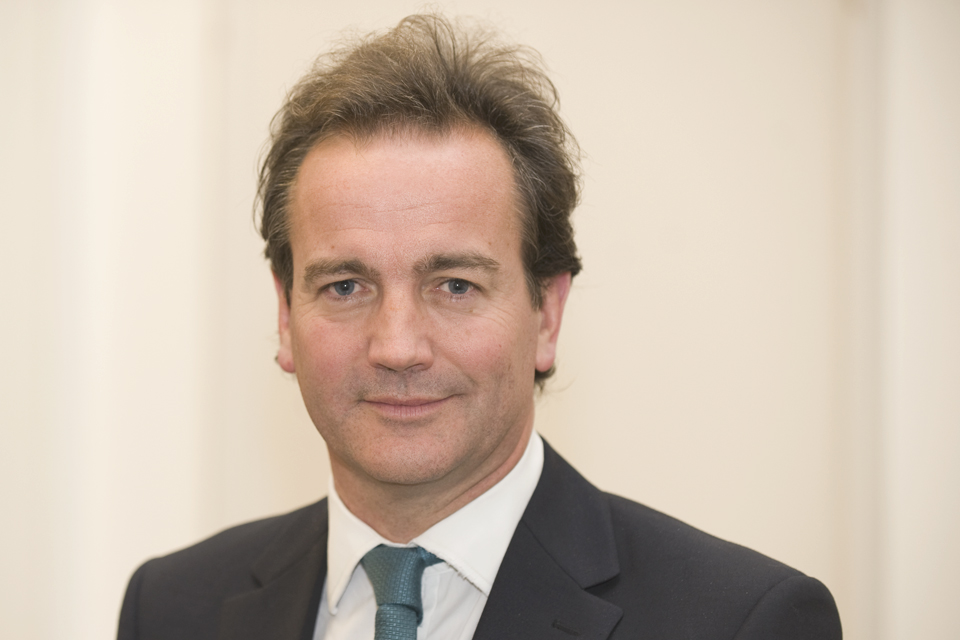Education for all: Nick Hurd speech
Speech made by DFID Parliamentary Under Secretary of State at a Global Campaign for Education and the All Party Parliamentary Group - Global Education for All event.

Education is a basic human right that gives children the chance to fulfil their potential, and is vital for resilient, stable and prosperous societies. That’s why the UK is putting the education of the hardest to reach children – particularly girls – at the heart of our response, recognising it is an urgent global challenge.
However, as we have heard today, all too often children living through emergencies and crises are missing out. The numbers speak for themselves. Of the 75 million children and young people affected, over 37 million are out of school. And those who are already the most vulnerable are the most likely to be left out.
Abandoning children where disaster strikes means consigning generations to dependency and hopelessness, and opening the door to poverty, extremism and violence. It also means depriving countries of the means and skills to rebuild when peace and stability return. No child should be deprived of the basic life chances that education provides. Damage done in their formative years can never be undone.
That’s why the UK is at the forefront of the international effort to give every child affected by the Syria crisis access to education, through the No Lost Generation initiative. To date, UK aid has provided over a quarter of a million children inside Syria with education. We have delivered textbooks to more than 350,000 children in Lebanon and provided hundreds of thousands with psychosocial support, such as mental health care and counselling. We have expanded and improved the public education system in Lebanon and Jordan, and helped 160,000 children inside Syria catch-up in essential subjects. On top of the £115 million provided for the first 2 years, we’ve announced a further £240m for education in Jordan and Lebanon over the next 4 years. But it is also vital that we work with others to achieve the best results. The Syria conference, hosted by the UK in February is a great example of what we can achieve when we get it right. Under the UK’s leadership, the world came together to secure commitments of over $11 billion. The conference also secured a promise – from governments, civil society, private sector and partners – to get every refugee child, and every vulnerable child in the host countries bordering Syria, into quality education by the end of the next academic year.
Another example of UK leadership is on girls’ education. We believe that investing in girls and women is both the right and the smart thing to do. An extra year of primary schooling for girls can increase their wages by 10-20%, most of which is likely to be reinvested in her family and community. That is why I am so proud of the Girls’ Education Challenge. This is a flagship programme supporting up to 1 million marginalised girls. It operates in 18 countries, with 36 projects testing – and scaling – innovative methods that enable girls’ access to education and learning. 40% of projects are being implemented in high risk and fragile environments. 20 of the projects have an element of technology including online educational content and wrap around training services to teachers and students.
I also want to talk about our research and the critical role it plays in ensuring that our work is driven by evidence. In Lebanon, we have put £1.3 million into a world class research programme to tell us about how much children learn in different education settings. In Jordan, we’re capturing data on how much children learn, according to their nationality and whether they study inside or outside a refugee camp. And through the Amplify project, we’re funding fresh, innovative approaches to refugee education. As the saying goes; knowledge is power.
However, as you heard from Kevin, we continue to face immense challenges. Part of the issue is funding. The current shortfall in funding for education in emergencies and crises is huge. Whilst parents and children prioritise education, it accounts for too small a share of aid. However, fixing the system will require more than funding – the problems to be addressed are systemic. That is why the UK, as co-chair of the technical strategy group for Education in Emergencies, has played a leading role in the design of this new platform. Its aim is to support millions more children and young people access a quality education, even in the toughest of circumstances. I am proud of the UK’s role to date in developing such an exciting initiative, and proud that we will continue to champion the platform ahead of its launch at the World Humanitarian Summit.
The World Humanitarian Summit itself is a top priority for the UK this year, coming at a time when the world is confronting an unprecedented level of risk and suffering associated with natural disasters and conflict.